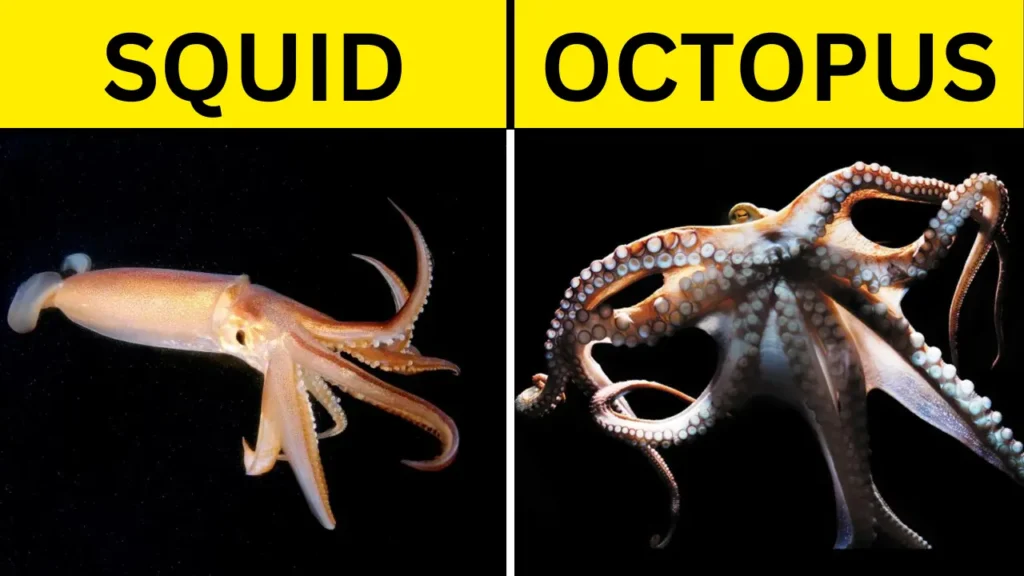
In the ocean’s mysterious depths, where sunlight struggles to penetrate, fascinating creatures like squid and octopus thrive with extraordinary features. One such marvel of underwater engineering is their closed circulatory system.
Unlike humans and many other animals, these cephalopods possess a circulatory system that is crucial to their survival. Let’s explore why squid and octopus have evolved to embrace this closed circulatory system.
The Basics of Circulatory Systems
Before we plunge into the unique characteristics of squid and octopus circulatory systems, let’s briefly understand the basics of circulatory systems.
A circulatory system transports oxygen, nutrients, and waste products throughout an organism’s body. There are two main types: open circulatory systems and closed circulatory systems.
Open circulatory systems, common in insects and mollusks like snails, involve a fluid called hemolymph that directly bathes the organs and tissues.
In contrast, closed circulatory systems, found in vertebrates and some invertebrates, use blood enclosed within vessels to transport substances. Squid and octopus fall into the latter category, exhibiting a closed circulatory system that offers unique advantages in their underwater habitat.
Advantages of a Closed Circulatory System
Efficient Oxygen Transport
Squid and octopus are highly active predators, constantly on the move in search of prey. A closed circulatory system allows for more efficient and rapid oxygen transport to the tissues, ensuring these cephalopods maintain the energy levels required for their active lifestyle.
Precise Nutrient Delivery
These cephalopods boast large brains and complex nervous systems, requiring a precise delivery of nutrients. A closed circulatory system allows for targeted nutrient transport, ensuring their intelligent brains receive the necessary resources for optimal function.
Temperature Regulation
Oceanic environments can be challenging with varying temperatures. The closed circulatory system of squid and octopus enables better temperature regulation, helping them thrive in diverse underwater habitats.
Pressure Control
The deep-sea environments where squid and octopus dwell can subject them to extreme pressure changes. A closed circulatory system allows for better control over blood pressure, preventing issues related to pressure differentials in the deep ocean.
Quick Response to Environmental Changes
Squid and octopus are renowned for their incredible ability to camouflage and swiftly navigate their surroundings. A closed circulatory system facilitates a rapid response to environmental changes, allowing these cephalopods to adapt quickly to threats or opportunities.
Adaptations in Squid and Octopus Circulatory Systems
Three-Heart System
One of the most intriguing adaptations in squid and octopus circulatory systems is their possession of three hearts. Two branchial hearts pump blood through the gills for oxygenation, while a systemic heart delivers oxygenated blood to the rest of the body. This unique arrangement enhances the efficiency of oxygen transport.
Highly Oxygenated Blood
Squid and octopus blood contain a copper-based molecule called hemocyanin, which is more efficient in binding with oxygen than the iron-based hemoglobin found in human blood. This adaptation allows these cephalopods to extract more oxygen from the water, supporting their energetic lifestyle.
Conclusion
In the dark and mysterious depths of the ocean, where survival is a constant battle, squid and octopus have evolved a closed circulatory system that serves as a testament to the wonders of underwater engineering.
The efficiency, precision, and adaptability offered by this circulatory system contribute significantly to the success of these intelligent cephalopods in their challenging habitats.
As we continue to explore and unravel the ocean’s secrets, the closed circulatory system of squid and octopus stands out as a remarkable example of nature’s ingenuity.
Also Read:
Waves: Unravelling the Characteristics and 3 Types of Waves
Can Acids and Bases be stored together?
FAQs:
Do octopus and squid have closed circulatory system?
Yes.
Is a squid circulatory system open or closed?
Closed circulatory system
Why do squids have a closed circulatory system?
To maintain their active lifestyle.